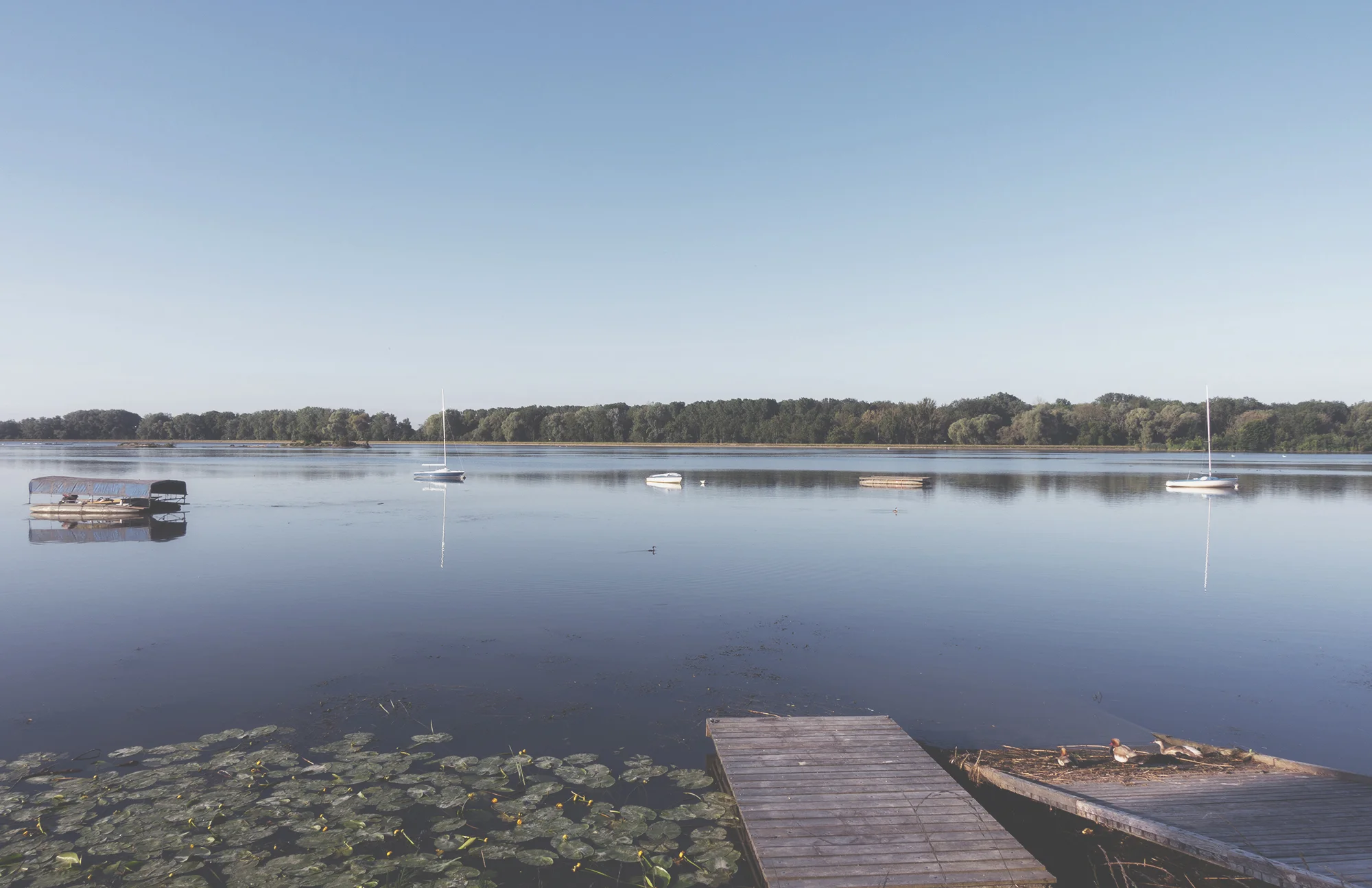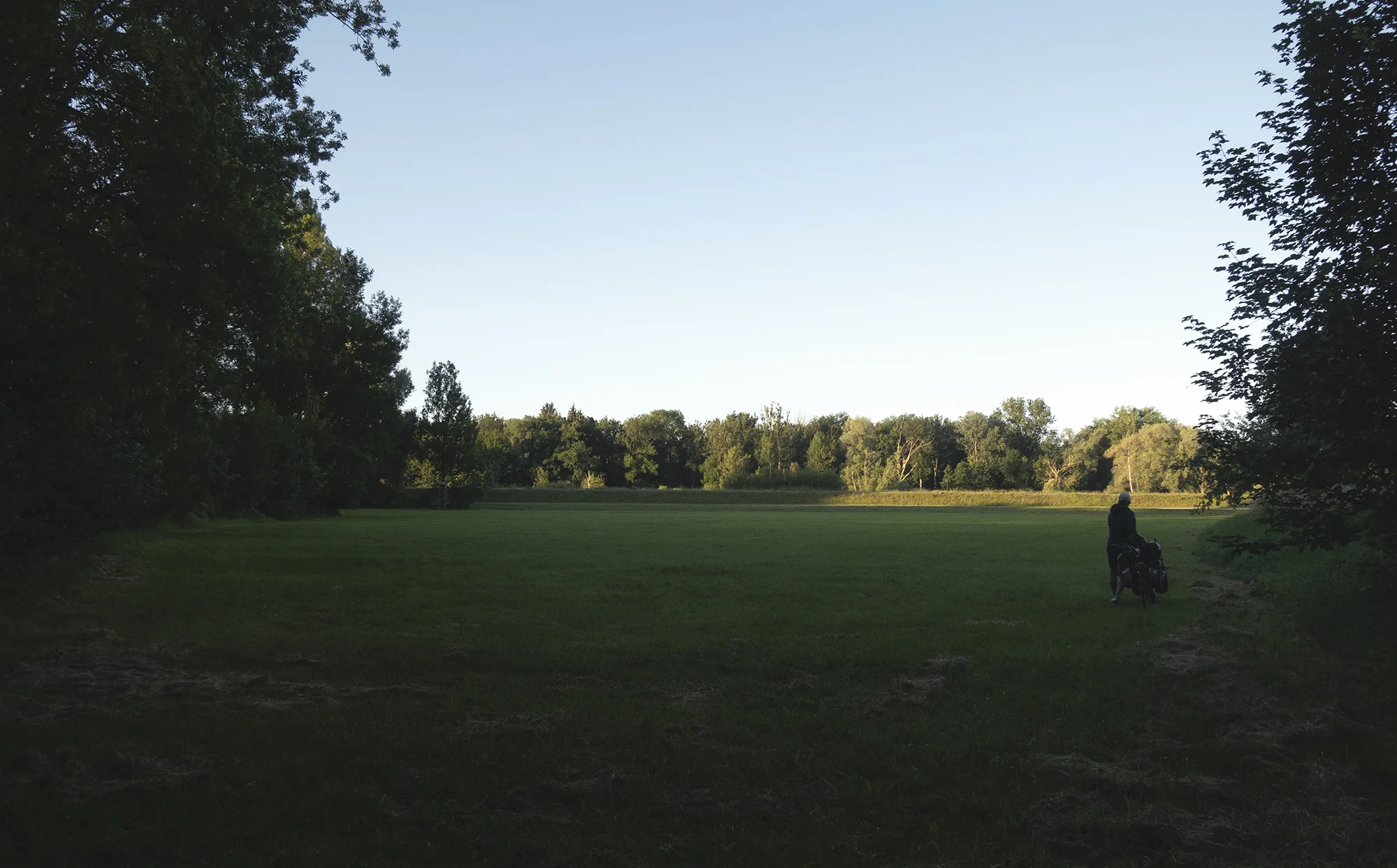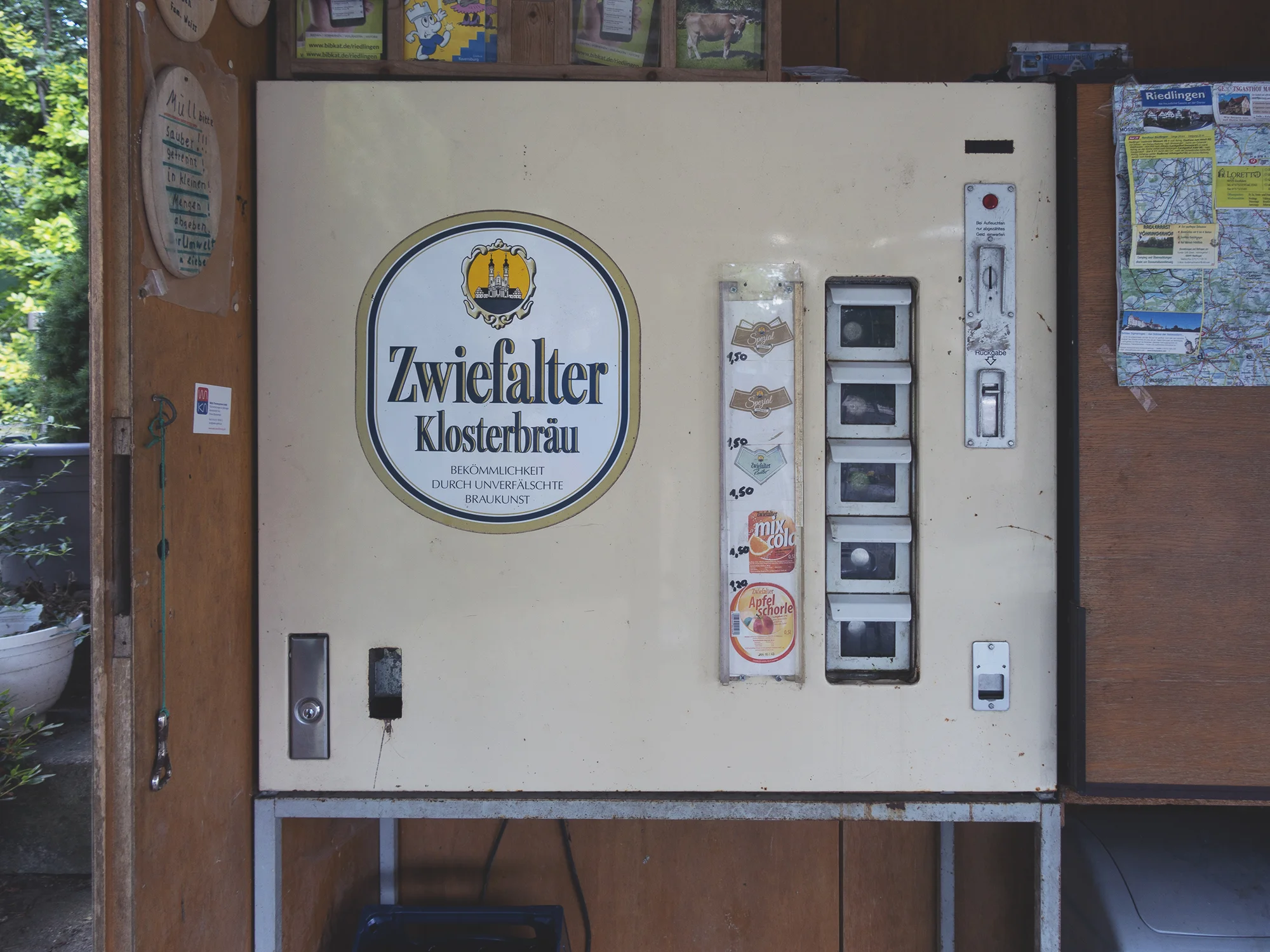Today after eighteen days spent cycling through Germany, we crossed the border into Austria - and it feels great! Whilst not a huge amount has changed (same language, same currency, similar landscape, albeit a slightly steeper terrain), it’s exciting to have a whole new culture to explore. To mark the occasion, we thought we would briefly summarise our experiences bikepacking along the Rhine and Danube rivers through Germany, mainly with regards to camping. There was quite a difference for us on both rivers in terms of accommodation for cyclists and backpackers.
Polaroids from each placed we stay
The route we took through Germany along the Rhine and Danube rivers largely follows the routes described in Cicerone's 'The Rhine Cycle Route' and 'The Danube Cycleway Volume I'. We chose this route through Europe to allow us to slowly ease into our new cycling life for the next year. The terrain is largely flat, ‘downhill’ and very well signposted, which we believed would mean less arguments! Out of the two rivers, I think it’s I fair to say we have favoured the Danube. The terrain has been slightly more varied, the scenery for us more picturesque and camping opportunities far more suited to cyclists. For anyone wanting to do a fairly gentle but varied cycle trip over a number of weeks, we would really recommend the Danube route from the source. The beauty is you can do as little or as much of it as you like. Cyclists we have met along the way are doing a route that suits their schedule from two or eight weeks for example, with an end point in a larger city such as Vienna or Budapest.
The Danube, near Marxheim
As a couple, we have a daily budget of €40 in Europe all in, which aims to cover accommodation, food, beer and any other daily expenses. Our aim from the start has to seek out cheap and cheerful campsites, to wild camp wherever possible and to look for available hosts (WarmShowers) in larger cities, which is also the perfect way to meet new people. Following the river routes in Germany has meant that the wild camping opportunities have been few and far between. As I mentioned in my previous blog, wild camping is technically illegal but people do still do it - just quietly.
Morning after a wild camp in Germany
Whilst we have been getting into this new way of life, we have admittedly struggled to let go of all the conveniences with which campsites afford - a shower, nice lawn, electricity and (if you’re lucky) WiFi. So I think it’s fair to say we have opted for official spots if there happened to be one close to our daily destination points. As we have kept our route pretty flexible, we haven’t always been able to give enough notice to potential hosts on WarmShowers. This has meant that our time in Germany has largely involved campsite accommodation.
Our experience of German campsites on the Danube has exceeded that of the Rhine. Maybe it’s because we’re slowly shaking off the need for modern comforts and just learning to enjoy space... Our experience overall with the Rhine is that campsites are more tailored to those with caravans, often with permanent pitches. Not only were they expensive for campers at €20 a night, we also often had to pay extra for a hot shower (€1 for 4-minutes - no joke), plus €2 per device if you wanted to use the WiFi. Electricity was only possible if you had a conversion lead plug (which we didn’t), so we had to leave our battery packs behind reception if we wanted charge (and remember to collect them before closing at 8pm).
The campsites along the Danube route have been of a greater, more affordable variety. These have ranged from your standard large site to smaller sites that have impressed us with their creativity. From camping spots at a local 'Kanu Club', to a neat lawn at a local farm (which even had a beer vending machine), we have enjoyed them all.
A beer vending machine!
Danube Recommendations: Listed below are the places we recommend for a stopover on the Danube with accommodation quoted where relevant. These have been listed in order of the stages as described in The Danube Cycleway guide, from the source in Martinskapelle.
- Triberg (Stage I): Tourist town known for the highest waterfalls in Germany.
- Martinskapelle (Stage I): We ended up staying at this quaint Hotel-Restaurant after our ‘day of extremities’ (see previous blog post). Recommended if you want a treat or have a larger budget (approx €100 with breakfast): Höhengasthaus Kolmenhof (https://www.kolmenhof.de/)
- Tuttlingen (Stage 2-3): Whilst we were too tired to venture into town, it’s a good stop over with a pool if you want to swim. The campsite was on the edge of a park and turned out to be free. Instructions read that you pay €5 at the local pool for a key to the shower block next to the lawn. However, a kindly German couple already had a key which they allowed us to use to take a shower.
- Reidlingen (Stage 3-4): We really liked this place. It’s basically a perfect lawn on the edge of a farm with clean toilets, a shower and a vending machine selling beer (see image above)! And only €6 per person: Campingplatz Vöhringer Hof
- Ulm (Stage 5-6): We didn’t actually stay here but after other ‘Kanu Club’ stays, we would recommend this (€5 per person): Ulmer canoeists e.V. (http://www.ukf-ulm.de/)
- Kelheim (Stage 9-10): A pretty town in Bavaria. We stayed at a farm campsite just outside the centre, perfect for cyclists. It had clean showers, a covered area with tables and chairs and good WiFi. Only €4,50 per person plus €2,50 for a small tent: Campingplatz Kelheim-Herrnsaal (https://www.camping-bauernhof.de/)
- Regensburg (Stage 11-12): A medieval Bavarian city definitely worth a visit. As we left the city the next day we cycled up to the Walhalla, which we also recommend (avoid weekends if possible). We stayed at our first ‘Kanu Club’, which was €7 per person with clean showers and electricity (some WiFi): Regensburg Kanu Club eV (http://regensburger-kanuclub.de/)
- Straubing: We stayed in Straubing for two nights, to include a rest day. It's a nice town and had a fun residents' festival in the town the night we arrived. The first night we kept it cheap and stayed at a cheap Kanu Club. Only €6 per person with clean showers and close to the centre (no WiFi): Straubiner Kanu Club (http://www.straubinger-kanuclub.de/). The second day we moved for our rest day (for WiFi and electricity) to a larger more site (€9,50 per person): Campingplatz Straubing (http://www.campingplatzstraubing.de/)
- Passau (Stage 14-15): The final day in Germany was spent in the beautiful city of Passau. This was probably our favourite German stopover. We stayed at another Kanu Club, popular with cyclists. It was more expensive than others at €9,50 per person but it was clean, had WiFi, a restaurant on site, and perfect camping by the Ilz river. Camping-Passau (http://www.camping-passau.de/)
If you’re thinking of cycling along the Danube or the Rhine river, please feel free to drop us an email with any questions or for further advice. I'll leave you with some British lessons/ observations from our time in Germany. B
- Cars drive a lot faster.
- A lot of cycle paths are gravel.
- Dogs owners always wait with their dog to one side to let you past.
- Every cyclist that passes you smiles, and often says ‘Hallo’ or ‘Morgen’. We like this.
- If you smoke, cigarette machines can be found in every residential street, usually fixed to a garden fence!
- Post vans are yellow and they drive from door to door to make their deliveries.
- Remembering to keep your mouth closed when cycling under trees if you want to avoid swallowing a swarm of insects.
- We learnt to say ‘Sorry, I can’t speak German’, two days before leaving the country.
- The Black Forest route is swarming with pensioners strapped to e-bikes that overtake you on steep inclines!
- We were told it’s custom to eat white German sausage at 11am with a pretzel and sweet mustard. We never found the white sausage!
_____________________________
Current Stats:
- Total days on road: 24
- Total rest days: 3
- Total distance completed: 1,701 Km
- Recent Ailments: More bruises
- Latest argument topic: Whose turn it is to use the Kindle.
Leaving Passau





